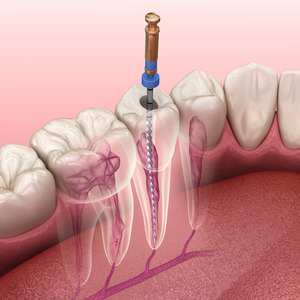The Do-Over: What is Root Canal Retreatment?
June 8, 2024

When patients see their dentist for a root canal, they’re often pleasantly surprised by what the treatment entails. Most people imagine this treatment to be lengthy and uncomfortable. However, the reality is that modern technology and powerful local anesthetics ensure patient comfort throughout the duration of their procedure.
That said, many patients aren’t exactly dying to get another root canal after their first one. In some situations, however, this is necessary. Here’s what you should know about root canal retreatment, why it’s necessary, and what the process will entail.
What is Root Canal Retreatment?
Root canal retreatment is precisely what it sounds like. It is done in the wake of a previous root canal treatment that didn’t quite “take,” meaning that further action is necessary in order to fully deal with the infection that led to the first root canal.
This can happen for any of a few reasons: it could be that the anatomy of your canal is more complicated than was previously thought, that it took too long to get your restoration, or that saliva contaminated the tooth after the treatment was complete.
What Does a Root Canal Retreatment Entail?
Root canal retreatment is conceptually simple; it involves undoing the work of your previous procedure and redoing it, this time looking for things that may have been missed the first time.
First, your tooth will be numbed completely with a powerful anesthetic. Any restoration that covers your tooth will be removed and the filling inside it will be taken out. Your dentist will then look for any signs of decay, remove it, clean the tooth, and fill it again with gutta percha. The tooth will be capped off with a new restoration, and you’ll be good to go!
Signs you Need Root Canal Retreatment
In the days after a root canal, there are a few things that are to be expected. Most patients are a little bit sore for a few days, and the tooth might be a little bit sensitive in the days after your root canal is put in place.
However, there are some unusual symptoms that could indicate that you need root canal retreatment. If pain gets worse instead of better, if you notice swelling or abscesses around the tooth, or if you notice that the root canaled tooth is coming loose, these are all signs that something is wrong.
If you notice these symptoms in a root canaled tooth, call your dentist. They’ll be able to diagnose the issue and let you know whether retreatment is a necessity.
About Our Practice
At Ellicott City Smiles Dental Group, we know that not everyone loves visiting their dentist, especially for a root canal. We want to change that. We make it a point to help patients get the care that they’re looking for, and more than that, to make the treatment that they receive from us as easy and straightforward as it can possibly be.
If you have any questions about root canal retreatment, we can be reached at our website or by phone at (410) 465-3224.
No Comments
No comments yet.
RSS feed for comments on this post.
Sorry, the comment form is closed at this time.
